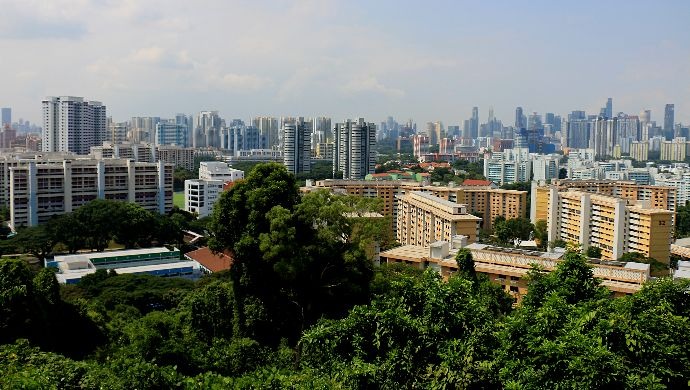The Infocomm Media Development Authority (IMDA) today launched a public consultation to seek views on its proposed converged competition code (“Converged Code”) for the telecommunication and media markets.
Objectives of the Review
Advancements in digital and information technologies, as well as the evolution of business models, have led to rapid convergence between the telecommunication and media markets in jurisdictions around the world, including Singapore.
IMDA has thus embarked on a holistic review of the Code of Practice for Competition in the Provision of Telecommunication Services 2012 (“Telecom Competition Code”) and the Code of Practice for Market Conduct in the Provision of Media Services (“Media Market Conduct Code”).
IMDA is developing a converged competition code for the Singapore telecommunication and media markets to streamline requirements to promote competition, encourage market innovation, better protect consumers’ interest and keep pace with the fast-changing digital landscape.
Key Policy Proposals
• Converged framework for telecommunication and media markets
IMDA proposes to harmonise several parts of the Telecom Competition Code and the
Media Market Conduct Code in the Converged Code, in order to improve regulatory
certainty.
For example, IMDA intends to adopt a consistent approach for dominance
classification and the threshold to be used for the initial presumption of Significant
Market Power for both telecommunication and media markets.
• Enhanced consumer protection measures
IMDA proposes a common set of consumer protection rules for all licensees to better
protect consumers’ interest. Key changes are as follows:
i. Restrict detrimental mid-contract changes by telecommunication licensees
To protect consumers against changes to contractual terms and services that are detrimental, IMDA proposes to extend the prohibition on detrimental mid-contract changes by telecommunication licensees, such as price increase or reduction of service features, to all licensees.For the media market, IMDA proposes to retain the requirement for Pay TV service providers to allow consumers to exit their fixed term contracts without any penalty if there are detrimental material changes to the contract, such as a significant reduction in the total number of channels.
ii. Enhance transparency of billing information
IMDA proposes to enhance information transparency by requiring a list of minimum billing information to be included in end users’ bills. Currently, the details provided in bills vary across service providers.With a wide range of services being provided by licensees, IMDA proposes for service providers to include a breakdown of charges for service subscription, value-added, ad-hoc and third party services. End users’ bills should also indicate where services are provided on a trial or complimentary basis and the expiry date of such services.
Clarity in billing information will promote transparency and avoid billing disputes,
benefiting both consumers and service providers.iii. Strengthen consumers’ understanding of contractual terms
To enhance consumers’ understanding of the terms and conditions in contracts, IMDA proposes to require all telecommunication licensees to provide a Critical Information Summary which summarises the key terms and conditions to consumers at the point of subscription.
• Reduced regulatory burden on dominant licensees
IMDA proposes to reduce the regulatory burden on licensees by adopting a “Marketby Market” assessment approach before classifying any licensee as dominant in new markets. Currently, a dominant telecommunication licensee is assumed to be dominant in all telecommunication markets it participates in, unless proven otherwise.
In view of the level of competition that has emerged over the years in many telecommunication markets, as well as the emergence of new markets and services such as Over-the-Top (“OTT”) applications, IMDA proposes not to presume dominance for new services offered by a dominant licensee in new markets, until IMDA has assessed it to be so. IMDA believes this approach will provide more incentives for licensees to innovate and offer new services to benefit consumers.
Similarly, IMDA is proposing to relax the interconnection requirements on dominant telecommunication licensees as legacy services provided over copper networks have become less critical with the growth of service adoption on new platforms such as the nationwide fibre network. Hence, IMDA proposes to remove network elements and services, and support facilities from the list of legacy services a dominant licensee is required to offer to competing licensees to facilitate interconnection of networks.
New Market Developments
IMDA has also reviewed how the increased use and importance of data and algorithms in a Digital Economy impact the application of competition rules. While IMDA is not proposing any changes to the Converged Code for these areas, IMDA seeks views on how these developments may affect the telecommunication and media markets and whether existing regulatory frameworks continue to be relevant given these larger economic shifts.
Ms Aileen Chia, IMDA’s Deputy Chief Executive and Director-General (Telecoms & Post), said: “This review seeks to converge the competition and consumer protection frameworks for the telecommunication and media markets, and provide greater clarity for our licensees amid the fast changing digital landscape. At the same time, the proposed changes will foster innovation in the market while safeguarding consumers’ interests.”
Conclusion
The public consultation will begin today, 20 February 2019, and will close on 17 April 2019. For full details of the public consultation, click HERE.
The statement above is a press release issued by the IMDA.



























